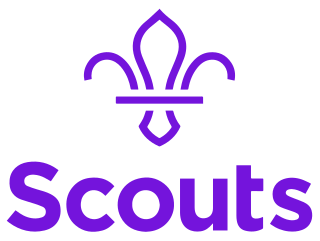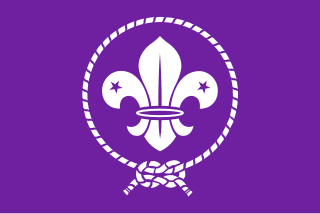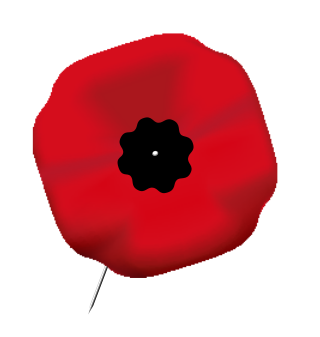
English Heritage is a charity that manages over 400 historic monuments, buildings and places. These include prehistoric sites, medieval castles, Roman forts, and country houses.

The International Union for Conservation of Nature (IUCN) is an international organization working in the field of nature conservation and sustainable use of natural resources. Founded in 1948, IUCN has become the global authority on the status of the natural world and the measures needed to safeguard it. It is involved in data gathering and analysis, research, field projects, advocacy, and education. IUCN's mission is to "influence, encourage and assist societies throughout the world to conserve nature and to ensure that any use of natural resources is equitable and ecologically sustainable".

The Scout Association is the largest Scout organisation in the United Kingdom. Following the rapid development of the Scout Movement from 1907, The Scout Association was formed in 1910 and incorporated in 1912 by a royal charter under its previous name of The Boy Scouts Association. It is a founding member organisation of the World Organization of the Scout Movement.

The Council for British Archaeology (CBA) is an educational charity established in 1944 in the UK. It works to involve people in archaeology and to promote the appreciation and care of the historic environment for the benefit of present and future generations. It achieves this by promoting research, conservation and education, and by widening access to archaeology through effective communication and participation.

The Erasmus Programme is a European Union (EU) student exchange programme established in 1987. Erasmus+, or Erasmus Plus, is the new programme combining all the EU's current schemes for education, training, youth and sport, the most recent programme covering the years 2021–27.

The Directorate-General for European Civil Protection and Humanitarian Aid Operations, formerly known as the European Community Humanitarian Aid Office, is the European Commission's department for overseas humanitarian aid and for civil protection. It aims to save and preserve life, prevent and alleviate human suffering and safeguard the integrity and dignity of populations affected by natural disasters and man-made crises. Since September 2019, Janez Lenarčič is serving as Commissioner for Crisis Management in the Von der leyen commission, and since 1 March 2023, Maciej Popowski leads the organisation as the Director-General.

European Union culture policies aim to address and promote the cultural dimension of European integration through relevant legislation and government funding. These policies support the development of cultural activity, education or research conducted by private companies, NGO's and individual initiatives based in the EU working in the fields of cinema and audiovisual, publishing, music and crafts.
An Taisce – The National Trust for Ireland, established on a provisional basis in September 1946, and incorporated as a company based on an “association not for profit” in June 1948, is a charitable non-governmental organisation (NGO) active in the areas of the environment and built heritage in the Republic of Ireland. It considers itself the oldest environmental and non-governmental organisation in the country, and is somewhat similar to the National Trust of England, Wales and Northern Ireland but based more directly on the National Trust for Scotland. Its first president was the prominent naturalist Robert Lloyd Praeger.

A grant is a financial award given by a government entity, foundation, corporation, or other organization to an individual or organization for a specific purpose. Unlike loans, grants do not need to be repaid, making them an attractive source of funding for various activities, such as research, education, public service projects, and business ventures. Examples include student grants, research grants, the Sovereign Grant paid by the UK Treasury to the monarch, and some European Regional Development Fund payments in the European Union.
Heritage Open Days is an annual celebration of England's history and culture that allows visitors free access to heritage sites and community events that are either not usually open to the public, would normally charge an entrance fee, or that are putting on something special for the festival. It also includes tours, events and activities related to history, nature and culture.

The European Solidarity Corps (ESC), known until 2016 as European Voluntary Service (EVS), is an international volunteering program by the European Commission for young people to go individually or in teams to another country, usually from one European country to another, to work for a non-profit cause. Since 2017, the program also offers opportunities for European youth to get engaged as volunteers in their own communities.

The European Scout Region is one of five geographical subdivisions of the World Organization of the Scout Movement, headquartered in Geneva, Switzerland, with a satellite office in Brussels, Belgium.

Ekmeleddin Mehmet İhsanoğlu is a Turkish chemistry and science history professor, academician, diplomat and politician who was Secretary-General of the Organisation of Islamic Cooperation (OIC) from 2004 to 2014. He is also an author and editor of academic journals and advocate of intercultural dialogue.

European Heritage Days (EHD) is a joint action of the Council of Europe and the European Commission involving all 50 signatory states of the European Cultural Convention under the motto, Europe: a common heritage. The annual programme offers opportunities to visit buildings, monuments and sites, many of which are not normally accessible to the public. It aims to widen access and foster care for architectural and environmental heritage. These events are also known as Doors Open Days and Open Doors Days in English-speaking countries.
Doors Open Days provide free access to buildings not normally open to the public. The first Doors Open Day took place in France in 1984, and the concept has spread to other places in Europe, North America, Australia and elsewhere.
Féile an Phobail, also known as the West Belfast Festival is a community arts organisation known for its August Féile (Festival). The organisation is prominent for its promotion of Irish and international culture. The festival takes place on and around Falls Road in Belfast, Northern Ireland.

Europa Nostra is a pan-European Federation for Cultural Heritage, representing citizens' organisations that work on safeguarding Europe's cultural and natural heritage. It is the voice of this movement to relevant international bodies, in particular the European Union, the Council of Europe and UNESCO. It has consultative status with UNESCO and is recognised as an NGO partner.

Europeana is a web portal created by the European Union containing digitised cultural heritage collections of more than 3,000 institutions across Europe. It includes records of over 50 million cultural and scientific artefacts, brought together on a single platform and presented in a variety of ways relevant to modern users. The prototype for Europeana was the European Digital Library Network (EDLnet), launched in 2008.
The Centre for European Volunteering (CEV), established in 1992, is the European network of over 60 organisations dedicated to the promotion of, and support to, volunteers and volunteering in Europe at European, national or regional level. Through the network, CEV works to ensure that: the value of quality volunteering as an expression of Solidarity and European values is understood, supported and celebrated; policies & programmes, together with the European social environment, inspires, encourages and supports quality European Volunteering; Individuals and organisations that are active in the volunteering and civil society sphere share, learn and are inspired from one another in the framework of CEV. In this way CEV reaches out to the many thousands of volunteers and volunteer organisations in Europe as a source of support bringing the European dimension to their work.

The First World War centenary was the four-year period marking the centenary of the First World War, which began in mid-2014 with the centenary of the outbreak of the war, and ended in late 2018 with the centenary of the 1918 armistice.















